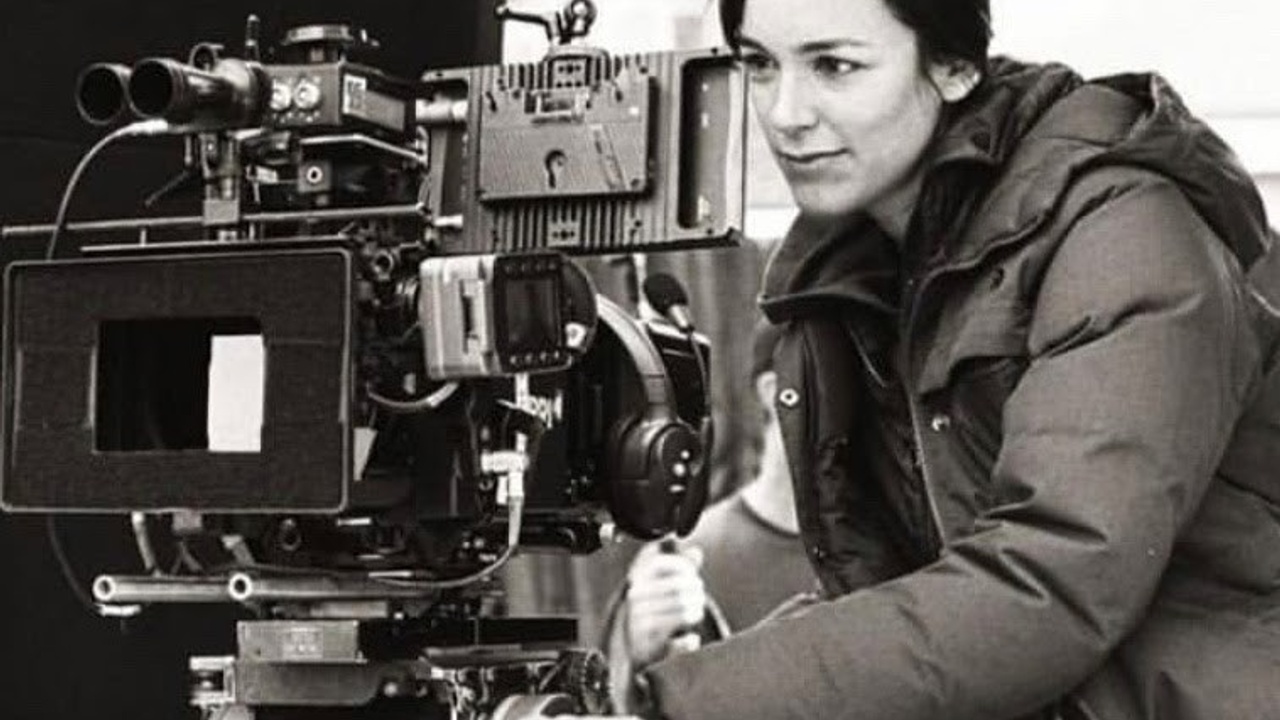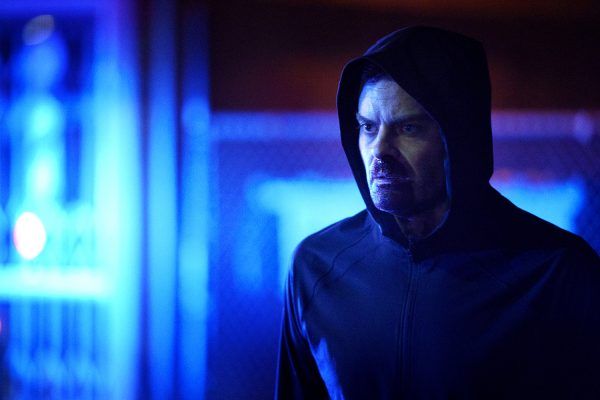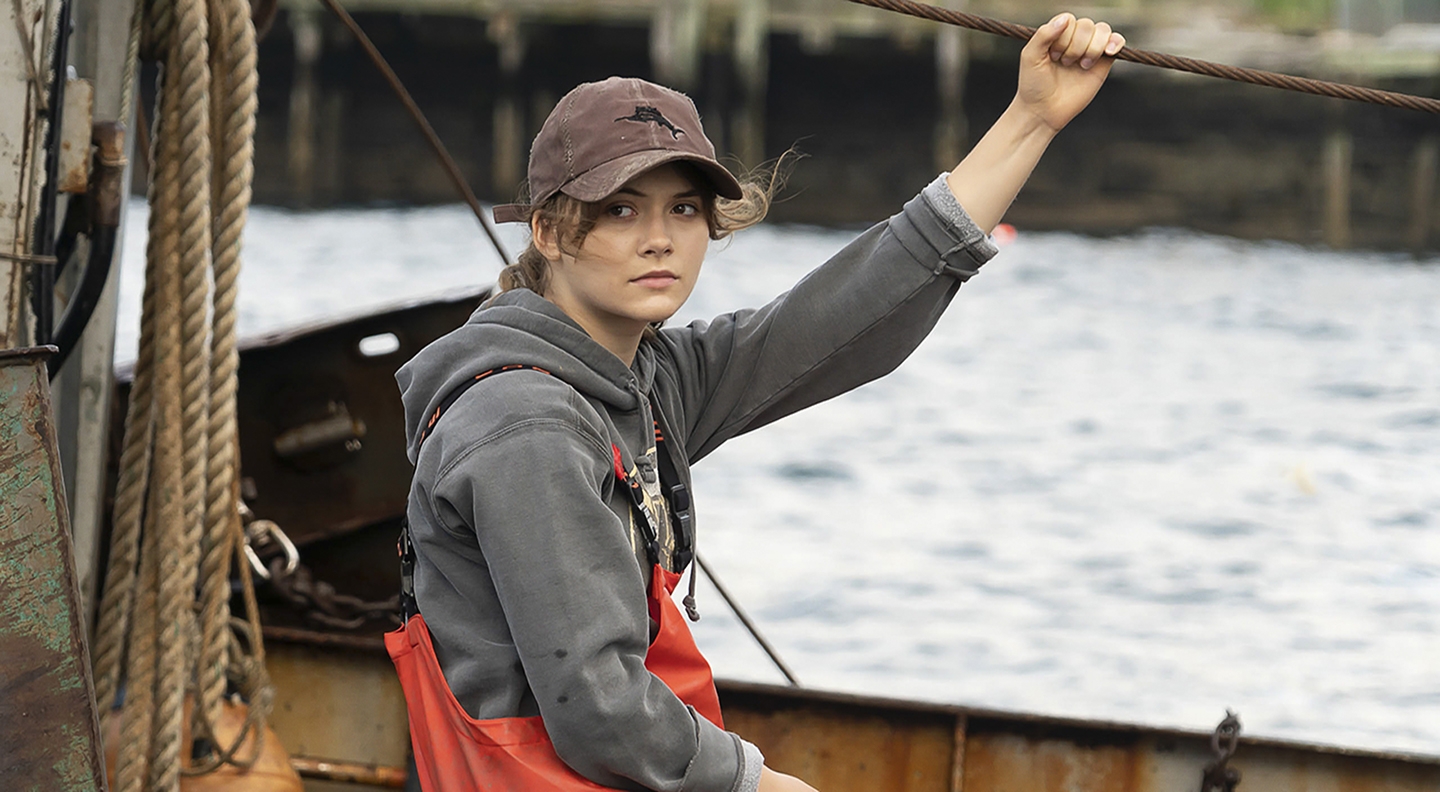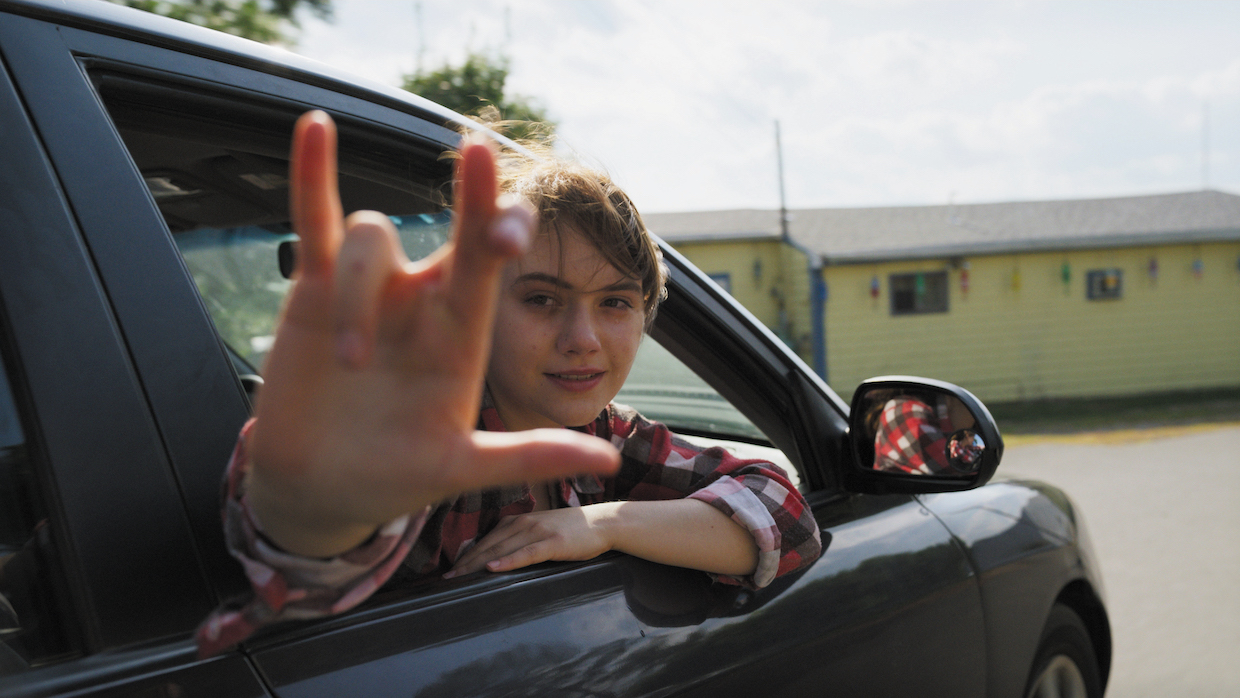"CODA" Cinematographer Paula Huidobro Talks About Filmmaking

Cinematographer Paula Huidobro talks with Filmmaker U about the challenges of shooting the recent film "CODA." For this film, Paula had to work with deaf actors, shoot tons of scenes on a boat and many other unique scenarios!
Paula Huidobro was born in Mexico City. She attended the London International Film School and later on specialized in cinematography at The American Film Institute.
Her feature film debut as a cinematographer was “Gardens of the Night” directed by Damian Harris in 2008, which received a Golden Bear Nomination at the Berlin Film Festival.
She went on to shoot Paul Bettany’s directorial debut "Shelter" with Jennifer Connelly and Anthony Mackie (TIFF Official Selection), "Tallulah" for Netflix (Jury Grand Prize nominee Sundance Film Festival), and most recently Oh Lucy (Cannes Film Festival Golden Camera Nominee 2017, Critics Week Grand Prize Nominee 2017 and Independent Spirit Awards Nominee 2018). Her latest film is Apple TV’s "CODA."
Gordon Burkell (GB) - This week, I'm joined by Paula Huidobro, whose work includes "CODA," "Barry," and "Fargo," among many other great films and shows. Welcome to the show. Paula.
Paula Huidobro (PH) - Thank you very much.
GB - I have to ask you about "Barry," because I love that show. Particularly Season Two, Episode Five. With the little girl who's doing all the stunts and everything. When you got the script, how did you envision shooting that versus how it came out? Because it looks it's it's quite a chaotic and exciting episode, I guess you could say.
PH - I think it was, it was pretty close to the way Bill Hader and I talked about the way we were gonna shoot it. I mean, for him, he didn't want to sort of glorify violence, even though it's all about the violence on the show. So he wanted to do like really long takes composed with them taking time to pan across the room or to track and let the shot play out instead of like covering it in a million pieces. So we watched "The Apartment" and also "Roma" for inspiration. Bill and I thought a lot about that episode, and the little girl was really amazing as well. So she did a bunch of the stunts.
GB - It's a long one take of the fight between him and the Father. So how did you guys light that so that you can actually see what's going on when we're moving around and seeing the whole room?

PH - Well, I mean, that was on stage. So lighting wasn't that hard. It was more the choreography of the camera. And sort of rehearsing with the stunts and filming the stunts to discovering the pace of what was going to be seen. They do some switches from the stunt person to the real person. Bill Hader at some points was wearing a mask and it was the stunt person instead of him.
GB - When you got brought on to "Barry," how did you go about developing the look for the series?
PH - Well, "Barry" was actually my first TV show, and they had already shot the pilot. So the look and the language was a little bit established, with the wider lenses and moving over locations that were already picked out. But then after that, you sort of slowly start making it your own. On the locations, they're not beautiful. You have to sort of embrace Burbank to go with the show. Like cement and those pinks and grays.
GB - They're always muted colors, I guess washed out colors because the sun just beats the hell out of that area.
PH - Yeah. So I guess he was just like not fighting the world of "Barry," and embracing it.
GB - Interesting. Now you're also working on Apple's "CODA". How did you get involved with that?
PH - Actually, I have been working with Sian Heder for a very long time since we were both young and in film school. I was at AFI, and I shot a short film for DWW. (Directors Woman's Workshop). Sian was a student there and the film we worked on did really, really well and went to Cannes. That sort of started her career. We've done other short films, and then we did the "Tallulah" film with Ellen Page. That also did really well at Sundance. We then did a tv show called "Little America." and now "CODA."
GB - "Little America," if I'm remembering correctly, that's not the reality show?
PH - No, it's another Apple show and an anthology of stories of immigrants in the US. So it was quite nice.
GB - How did you work with the Director to come up with the look of "CODA"?

PH - Sian (the Director), is from Boston so she was really close to Gloucester, the world where it actually took place. It was also an adaptation of a French movie that she wanted to make her own. She really took it on to learn about Deaf culture and language, and then also about the fishing community. She had grown up going to Gloucester, so she knew the locations pretty well.
GB - What were some of the challenges in shooting "CODA"?
PH - I think some of the challenges were shooting on the boat, because the boat is pretty small. We had to be three miles away from the coast, and we could only have a limited amount of crew. It was also potentially dangerous. So we had to be aware of that. Also, you can only fish once, I mean I. guess you can bring the nets up. But eventually the fish die. So you have to choreograph all the shots you need. The actors happened during the process of fishing, which was intense for them.
GB - When you go on the water, there's a lot of reflections that are shifting and changing. How did that work with that?
PH - I think in the ocean was sort of a slightly more documentary approach. The cameras in the boat were handheld. We didn't really have room for much equipment. We also had a crane on a stabilized head on another boat. With that we did more of the landscape and beautiful shots of the boat.
GB - Now, since "CODA" was a remake, what did you keep from the original? And what did you change from the original?
PH - I think it was more about the story rather than the look. I didn't really reference it as much for the look.
GB - One of the questions I like to ask all the Cinematographers and Colorists that I talk to is where do you go for inspiration? Do you have look books that you collect or artists that you particularly look towards for inspiration?
PH - Usually when I interview for a movie, I start thinking about movies that I feel are slightly similar, either story point, the way the camera moves, the lighting works, the color palette, or location that its set. Then I watch pieces of the movie that I am referencing, or I use a website called film grab, that's pretty awesome. The directors also have their own sort of inspiration. I think it's very helpful to reference certain scenes from other movies and be like," Oh, is that what you're thinking?" Then, from there, you develop your own language and then go to the locations to start imagining what the actors may do.
GB - Now how do you like to work with Colorist then on projects? It has become such a team effort.
PH - Yeah, I like to go and sort of show them some stills of colors and of the contrast that I'm going for. Then I do a camera test either with the actors or in the place. Just sort of getting it closer to the actual look of the movie or the project. Then we create a LUT together, so that when I shoot its sort of closer to what the final thing is going to be. Then we work together at Color timing.
GB - Did you have to learn sign language for the set? Or did someone help you with that on one set?
PH - Oh, no. Luckily, there were interpreters. Sian did learn sign language, because he had to speak with the actors a lot more and I guess was taking away from her connection through an interpreter. But for me, it was a little bit more basic, the language that I needed to communicate with them. But yeah, it's a whole process, sort of setting the scene and rehearsing the scene, and also knowing what they're saying. Sometimes we'll have a translator sort of narrating what they were saying on their earpiece.

GB - Is there a particular photographer or artist whose work you really admire and sort of go to for inspiration like particular cinematographer or anything?
PH - Well, I mean, there's a lot of them. I like Sven Nykvist, Chivo of course, and Roger Deakins. Dion Beebe.
GB - What is it about their work that attracts you?
PH - I think that they, I mean, they create a very unique language. It feels just right. It feels like they really went deep into the rabbit hole to not do the same as other people or to make it appropriate for the project. Like Roger Deakins, his movies are so different, which I really love.
GB - What would you say working on an indie film versus a big show, like "Barry," are some of the big differences?
PH - I guess we have less experienced crew and less equipment, but, and then maybe, sometimes less time. But I think on a movie, the great thing is that you only have one director, and you usually have more time to prep and like you sort of develop a closer rapport. Whereas in television, like there's different directors with different episodes, and sometimes, some are better than others, or, like, you just have to constantly adapt to a new person every time.
GB - You've been able to work on these amazing projects. What would you go back and tell yourself when you were starting out? Is there something you learned that you told the younger you when you were just starting out that would have been beneficial for your career?
PH - Nah, I think I think you constantly learn and you're constantly improving, and you're constantly telling yourself next time I'll do this, I'll do that. But I think when I was young, I was very determined and like, I got an internship with Emmanuel Lubezki and approached experienced people and tried to learn from them. I think people are very receptive to younger people asking for an internship or advice. Also watch as many films as you can. Reading about movies. That's a fun part.
GB - Now, you've worked with a lot of directors who are also actors. How does that experience differ from working with directors who aren't actors?
PH - I think it's a lot of fun working with directors who are actors because they act out the scenes for you while you're prepping the movie and I think they're more sensitive or can sort of guide you into the world easier. They're great talking to the actors as well.
GB - Is there a particular genre, or style of film that you've wanted to try but haven't had a chance to?
PH - I love drama, but somehow I always do comedy. Well, I tend to do dark comedy a lot. I don't really love action, but I love period stuff that's more drama and character driven.
GB - What would you say is the most challenging aspect of being a Cinematographer?
PH - I think you always have to be focused and concentrated. You need a lot of energy throughout the day, because you're always on. You don't get time to rest. You're always setting up the shot or looking at the rehearsal or lighting. I think if you're not focused, you can miss the opportunity to make a great shot. But I think the amazing part is that you're always very engaged and focused, and you can always do better.
GB - I have one last question that I like to ask everyone I interview. We've been stuck in this pandemic for quite a while. In that time, a lot of people have turned to streaming services for entertainment. Is there a show or a movie you've discovered over the last year that you think people should check out?
PH - I was watching a lot. I prefer watching movies. I was watching Billy Wilder a lot.
GB - Oh, yeah. What was it about his work?
PH - I think I mean, it's incredibly funny and sophisticated. Just the way he would frame or light or like, block the scenes, I thought was pretty incredible. I was also watching a lot of Louis Bunuel. He was quite unique and perverse and sophisticated.

